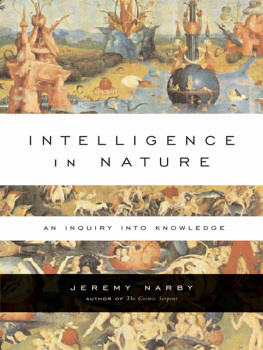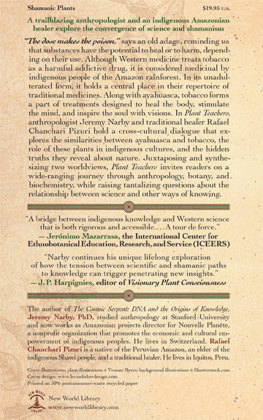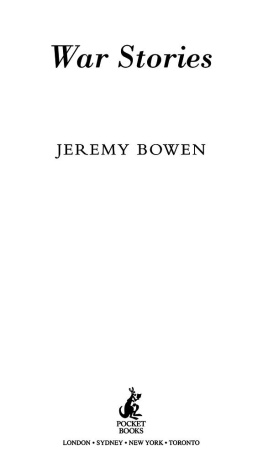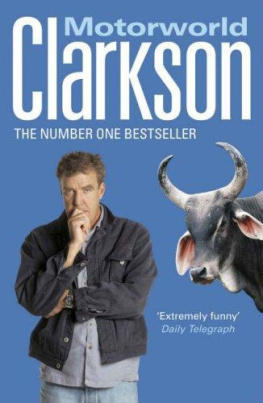Jeremy Narby - Intelligence in Nature
Here you can read online Jeremy Narby - Intelligence in Nature full text of the book (entire story) in english for free. Download pdf and epub, get meaning, cover and reviews about this ebook. year: 2006, publisher: Jeremy P. Tarcher/Penguin, genre: Detective and thriller. Description of the work, (preface) as well as reviews are available. Best literature library LitArk.com created for fans of good reading and offers a wide selection of genres:
Romance novel
Science fiction
Adventure
Detective
Science
History
Home and family
Prose
Art
Politics
Computer
Non-fiction
Religion
Business
Children
Humor
Choose a favorite category and find really read worthwhile books. Enjoy immersion in the world of imagination, feel the emotions of the characters or learn something new for yourself, make an fascinating discovery.
- Book:Intelligence in Nature
- Author:
- Publisher:Jeremy P. Tarcher/Penguin
- Genre:
- Year:2006
- Rating:3 / 5
- Favourites:Add to favourites
- Your mark:
- 60
- 1
- 2
- 3
- 4
- 5
Intelligence in Nature: summary, description and annotation
We offer to read an annotation, description, summary or preface (depends on what the author of the book "Intelligence in Nature" wrote himself). If you haven't found the necessary information about the book — write in the comments, we will try to find it.
Intelligence in Nature — read online for free the complete book (whole text) full work
Below is the text of the book, divided by pages. System saving the place of the last page read, allows you to conveniently read the book "Intelligence in Nature" online for free, without having to search again every time where you left off. Put a bookmark, and you can go to the page where you finished reading at any time.
Font size:
Interval:
Bookmark:
The Cosmic Serpent: DNA and the
Origins of Knowledge
Shamans Through Time: 500 Years on the Path
to Knowledge (with Francis Huxley)
AN INQUIRY INTO KNOWLEDGE
Jeremy P. Tarcher / Penguin
a member of Penguin Group (USA) Inc.
New York
Jeremy P. Tarcher/Penguin
Published by the Penguin Group
Penguin Group (USA) Inc., 375 Hudson Street, New York, New York 10014, USA
Penguin Group (Canada), 90 Eglinton Avenue East, Suite 700, Toronto, Ontario M4P 2Y3, Canada
(a division of Pearson Penguin Canada Inc.) Penguin Books Ltd, 80 Strand, London
WC2R 0RL, England Penguin Ireland, 25 St Stephens Green, Dublin 2, Ireland (a division of Penguin
Books Ltd) Penguin Group (Australia), 250 Camberwell Road, Camberwell, Victoria 3124, Australia
(a division of Pearson Australia Group Pty Ltd) Penguin Books India Pvt Ltd, 11 Community
Centre, Panchsheel Park, New Delhi110 017, India Penguin Group (NZ),
Cnr Airborne and Rosedale Roads, Albany, Auckland 1310, New Zealand (a division of
Pearson New Zealand Ltd) Penguin Books (South Africa) (Pty) Ltd,
24 Sturdee Avenue, Rosebank, Johannesburg 2196, South Africa
Penguin Books Ltd, Registered Offices: 80 Strand, London WC2R 0RL, England
Copyright 2005 by Jeremy Narby
All rights reserved. No part of this book may be reproduced, scanned, or distributed in any printed or electronic form without permission. Please do not participate in or encourage piracy of copyrighted materials in violation of the authors rights. Purchase only authorized editions.
The Library of Congress catalogued the hardcover edition as follows:
Narby, Jeremy.
Intelligence in nature: an inquiry into knowledge / Jeremy Narby.
p. cm.
Includes bibliographical references and indexes.
1. Psychology, Comparative. 2. Animal intelligence. 3. OrganismsMiscellanea. I. Title.
BF671.N37 2005 2004058849
156'.3dc22
ISBN: 978-1-1011-9089-0
While the author has made every effort to provide accurate Internet addresses at the time of publication, neither the publisher nor the author assumes any responsibility for errors, or for changes that occur after publication. Futher, the publisher does not have any control over and does not assume any responsibility for author or third-party websites or their content.
To Beatrice
The endnotes tell a story of their own, and I leave it to individual readers to determine how much or how little to use them. The narrative can be read entirely by itself, but for those who wish more information on a given topic or statement, many passages are calibrated by chapter, page number, and subject matter to endnotes that begin on page 149.
NATURE LOVES TO HIDE
HERACLITUS
F or fifteen years I have helped indigenous Amazonian people gain titles to their lands. These are people who believe that plants and animals have intentions, and that shamans communicate with other species in visions and dreams. Their way of knowing is difficult for rationalists to grasp.
More than a decade ago, I began searching for common ground between indigenous knowledge and Western science, and ended up finding links between shamanism and molecular biology. In the book The Cosmic Serpent, I presented the hypothesis that shamans take their consciousnesses down to the molecular level and gain access in their visions to information related to DNA, which they call animate essences, or spirits.
In the Amazon, indigenous leaders and shamans expressed broad interest and support for this approach. For them, it was not news that their knowledge is real.
But on the other side of the equation, things were more complicated. Western science has some difficulty with the possibility of both nonhuman intelligence and the subjective acquisition of objective knowledge. Since its original publication in 1995, The Cosmic Serpent has not gained the attention I had hoped for from scientists. However, several biologists read it with interest and engaged me in dialogue. One biophysicist challenged me to test the hypothesis, saying that this was the true method of science.
He had a point. As an anthropologist, I am no scientist and had never tested a hypothesis. I decided to take up this challenge. To test the hypothesis, I accompanied three molecular biologists to the Peruvian Amazon to see whether they could obtain biomolecular information by ingesting a psychoactive plant brew administered by an indigenous shaman. In the realm of visions, all three received clear answers about their work.
One of these molecular biologists, Dr. Pia Malnoe, who teaches at a Swiss University and who directs a research laboratory, concluded: The way shamans get their knowledge is not very different from the way scientists get their knowledge. It has the same origin, but shamans and scientists use different methods.
I published an account of this encounter between parallel avenues of human knowledge and ultimately realized I was stuck on getting the approval of the scientific establishment. I decided to redirect my inquiry.
One question seemed more important than any other. By digging into history, mythology, indigenous knowledge, and science, I had found clues pointing to intelligence in nature. This seemed like a new way of looking at living beings. I had grown up in the suburbs and received a materialist and rationalist educationa worldview that denies intention in nature and considers living beings as automatons and machines. But now, there was increasing evidence that this is wrong, and that nature teems with intelligence. Even the cells in our own bodies seem to harbor a hive of deliberate activity.
Toward the end of the 1990s I began focusing on the works of biologists who study organisms rather than molecules. To my surprise I found a number of recent studies demonstrating that even simple creatures behave with intelligence. Scientists now show that brainless single-celled slime molds can solve mazes and bees with brains the size of pinheads can handle abstract concepts. Philosopher John Locke proclaimed in the seventeenth century: Brutes abstract not. But, in fact, brutes abstract, and reductionist science recently proved it. I even found contemporary scientists who claim that natural beings can only be understood by attributing humanness to them. This is what shamans have been saying all along.
This led me to launch an investigation on the subject of intelligence in nature, a concept constructed by combining science and indigenous knowledge. I would later learn that Japanese researchers already possess a term for this knowingness of the natural world: chi-sei (pronounced CHEE-SAY). But I would begin the first leg of my search in the Amazon, where I had first met people who attribute spirits, intentions, and humanness to other species. Then I intended to do an anthropology of science and visit scientists in their working environment.
I set off on a quest not knowing what I was going to find. I went hunting for treasure, whereabouts unknown.
O NE SUMMER DAY just before the beginning of this investigation I visited an old herbal healer living on an isolated farm in Estonia. Her name was Laine Roht, which means Wave Grass in Estonian.
I was introduced to Roht by the Estonian translator of my previous book. She led us to a small outdoor shelter at the back of her garden, which contained a rudimentary fireplace decorated with empty Russian champagne bottles. Roht spoke only Estonian.
Font size:
Interval:
Bookmark:
Similar books «Intelligence in Nature»
Look at similar books to Intelligence in Nature. We have selected literature similar in name and meaning in the hope of providing readers with more options to find new, interesting, not yet read works.
Discussion, reviews of the book Intelligence in Nature and just readers' own opinions. Leave your comments, write what you think about the work, its meaning or the main characters. Specify what exactly you liked and what you didn't like, and why you think so.








